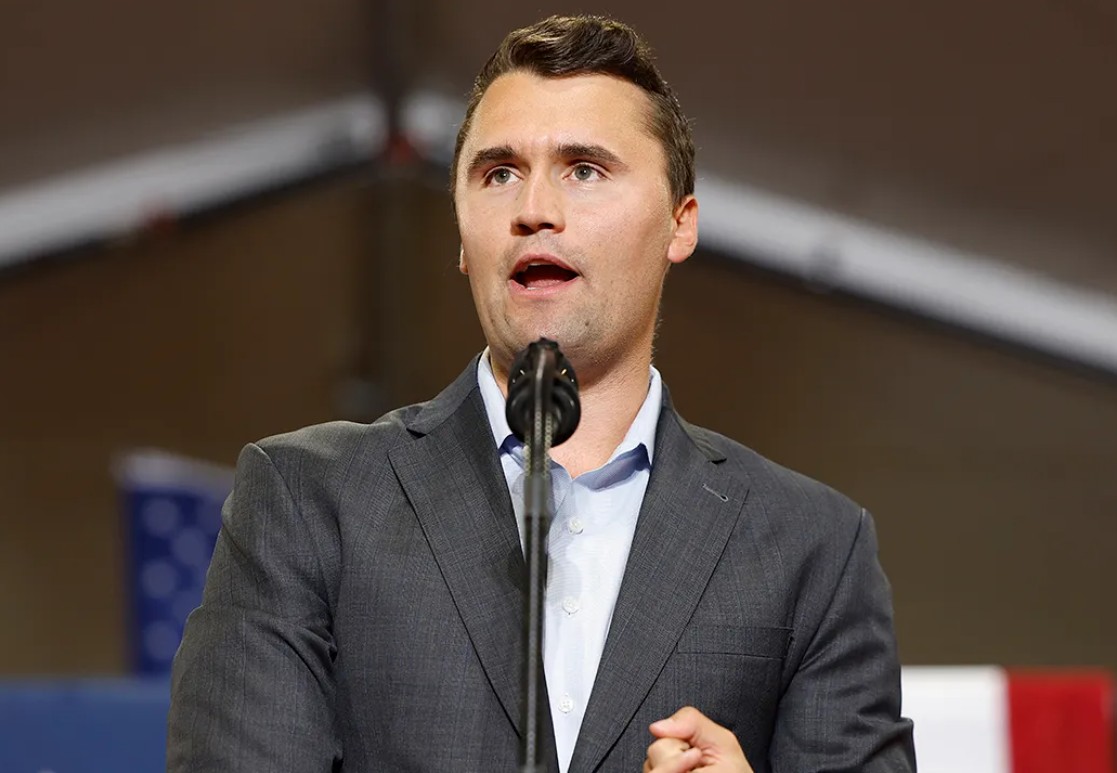Charlie Kirk Shooting Video on X (Twitter) Reddit and Close Up
The United States is no stranger to political turmoil, but the recent shooting of conservative commentator Charlie Kirk has shocked the nation and cast an even darker shadow over its political landscape. Kirk, a 31-year-old outspoken ally of former President Donald Trump, was fatally shot while speaking at Utah Valley University during his “American Comeback” tour. The attack was not just another act of violence it was an event that underscored the fragility of American democracy in an era of escalating political extremism.

The killing highlights an unsettling trend: political disagreements in the U.S. are increasingly turning violent, transforming ideological battles into life-or-death struggles. This incident comes amid a series of violent events targeting political leaders, institutions, and even civilians, illustrating that violence has become a disturbing feature of American political life.
Contents
The Shooting Incident and Full Video
The fatal shooting occurred during what was supposed to be a routine stop on Kirk’s speaking tour. Hosted at Utah Valley University, the event attracted a large audience of students and community members, many of them eager to hear from one of the country’s most controversial conservative voices.
Uncensored video of the shooting that ended Charlie Kirk’s life forever
charlie-kirk-shooting-video-1.mp4
Video of the shooter hiding on the rooftop
charlie-kirk-shooting-video-2.mp4
During a Q&A session, an audience member asked Kirk about mass shootings, specifically how many involved transgender shooters a question that touched on one of Kirk’s most contentious talking points. Moments later, chaos erupted when a gunman opened fire, striking Kirk in the neck.
The attacker, described as a man in a white T-shirt and jeans, fled the scene. Authorities confirmed that he remains at large, and his political motives are still unknown. Witnesses described scenes of panic, with attendees rushing for cover while campus security and local police tried to secure the area.
Donald Trump, who has relied heavily on Kirk and his organization, Turning Point USA, to mobilize young conservative voters, confirmed Kirk’s death shortly afterward. “No one understood or had the Heart of the Youth in the United States of America better than Charlie,” Trump wrote in tribute, cementing Kirk’s place as one of the most influential figures in his political orbit.
Who Was Charlie Kirk?
To understand the weight of this tragedy, it is important to examine the man at the center of it. Charlie Kirk was not just another commentator he was a lightning rod for political debate.

As the founder and CEO of Turning Point USA, a conservative student organization, Kirk cultivated a reputation for being both strategic and provocative. His mission was clear: mobilize America’s youth to embrace conservative politics, vote Republican, and support Donald Trump. Under his leadership, the organization became one of the most powerful conservative groups in the country, hosting massive student conferences and creating an online network that rivaled established political institutions.
Yet Kirk was not without controversy. He was regularly accused of spreading misinformation, engaging in xenophobic rhetoric, and stirring up division on college campuses. His critics saw him as an instigator of hate, while his supporters celebrated him as a fearless truth-teller who dared to challenge progressive orthodoxy. This polarizing role made him a symbol of America’s fractured political identity.
The Larger Context of Political Violence in the U.S.
Kirk’s death cannot be viewed in isolation. It is part of a disturbing pattern of escalating political violence that has taken root across the United States in recent years.

Just in 2024 and 2025, several high-profile incidents demonstrated how ideological conflicts are spilling into violent confrontations:
In 2024, Donald Trump survived two assassination attempts.
Last December, the head of United Healthcare was killed by a gunman in what investigators called a politically motivated attack.
In April 2025, Pennsylvania governor Josh Shapiro’s home was burned down in an arson attack.
In June, a Minnesota state lawmaker and her husband were gunned down by a man disguised as a police officer, while another lawmaker and his wife were wounded.
In August, a gunman stormed the Centers for Disease Control and Prevention headquarters, killing a police officer.
These incidents reveal a troubling truth: violence is becoming an increasingly accepted tool for expressing political dissent. Public officials, corporate leaders, and ordinary citizens are now at greater risk of being targeted simply because of their political or ideological affiliations.
Public Opinion and the “Era of Violent Populism”
The rise in political violence has not gone unnoticed by scholars. Robert Pape, director of the Chicago Project on Security and Threats, has studied this trend closely. In a survey published earlier this year, Pape revealed that acceptance of political violence has sharply increased across party lines.
According to the survey, 40 percent of Democrats said they would support using force to remove Donald Trump from the presidency, while 25 percent of Republicans endorsed using the military to stop protests against Trump’s agenda. These numbers had more than doubled compared to similar surveys conducted just months earlier.
For Pape, this is evidence that the United States is entering what he calls an “era of violent populism.” He warned that the nation has become a “powder keg” where grievances, misinformation, and partisan hostility are combining to create explosive conditions. Without strong leadership condemning violence on all sides, he cautions, incidents like Kirk’s shooting could become more frequent and more deadly.
Reactions to Kirk’s Death
In the hours following Kirk’s assassination, condemnation poured in from across the political spectrum. Politicians, journalists, and activists expressed shock and sorrow, calling the shooting an unacceptable act of violence in a democratic society.
Pape himself emphasized the importance of these condemnations. “They’re extremely helpful here as we go forward,” he said. “It won’t stop everything, but it helps to stop the snowball.”
Yet alongside calls for peace came warnings of vengeance. Some right-wing figures immediately framed the shooting as part of a broader war on conservatism. The popular right-wing X account “Libs of TikTok” declared bluntly: “THIS IS WAR.” Such rhetoric stoked fears that Kirk’s death could ignite a cycle of retaliatory violence.
On the other side, progressive commentator Hasan Piker, who was scheduled to debate Kirk later this month, expressed both sorrow and fear during a livestream. “The reverberation of people seeking out vengeance in the aftermath of this violent, abhorrent incident is going to be genuinely worrisome,” he said. His concern echoed those of many observers who fear that polarization is pushing the country toward a dangerous tipping point.
Potential Consequences
The murder of Charlie Kirk carries consequences that extend beyond the immediate tragedy.
For American politics, his death could deepen existing divisions and further destabilize an already fragile system. Lawmakers, campaigners, and activists are likely to face increased security threats, while universities and public venues may impose stricter controls on political events. Some worry that these measures will further restrict public discourse, limiting opportunities for dialogue at precisely the moment when dialogue is most needed.
For society at large, the normalization of violence as a political tool poses a grave danger. When disagreements escalate into physical attacks, trust in democratic institutions erodes. Citizens may begin to see violence as a legitimate means of achieving political goals, further weakening the foundations of democracy. The United States risks entering a vicious cycle where each act of violence justifies the next, pushing the nation further from peaceful resolution and deeper into division.
Charlie Kirk’s shooting is more than just the death of a controversial commentator it is a stark reminder of the perilous state of American politics. His killing reflects a broader trend of violence tied to ideological conflict, a trend that threatens not only public safety but the health of democracy itself.
The question facing the United States now is whether this tragedy will serve as a turning point. Will it inspire political leaders on both sides to denounce violence unequivocally and seek ways to bridge divides? Or will it push the nation further into the abyss of polarization, where each act of violence breeds another?
The choice remains uncertain. What is clear is that without decisive action to de-escalate tensions, America risks sliding deeper into an era of violent populism where debate is replaced by bloodshed. Charlie Kirk’s death, tragic as it is, could either mark the beginning of a more violent chapter or serve as the moment when the nation decides to step back from the brink.
Hot News -Isabella Ladera y Beéle video viral con Erome and Controversy
Iryna Zarutska Video and The Day of the Incident
Louisa Jespersen and Maren Ueland Video and Crime
Ikbal Uzuner Video and The Father’s Testimony
Major Galore Viral Video on Twitter and Public Reaction
Minneapolis Shooting and Robin Westman Youtube Video
Victoria Tesla Video on Twitter and Man in a Tesla

